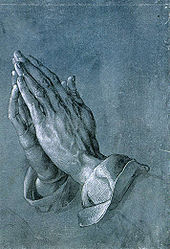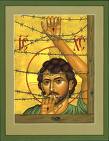The First Fruit of the Spirit is Love
Writing about LOVE is daunting. What can one say about it that has not already been said? How many songs and poems, plays and stories have been written about it?
But the hesitation about this is based on a false premise. The false premise is that our lives and thoughts are set and not constantly changing. Change scares us but change also frees us and gives us hope. So, LOVE is always new in us. Everyday we grow and greet life with new thoughts and feelings. These may be negative, but even if they are, we are exploring new ways to reach for love, to know love, to experience love, to be angry at love.
Recently I was wrestling with the tremendous variety in love. From the Greeks forward we know the ancient spectrum of types of love: from pleasure to sacrificial spiritual love — pure altruism. I have always considered the “ideal love” — the purely altruistic love — the standard against which I judge my feelings and actions. I put myself down for having “Mixed Motives.” I see that I often pursue people for double motives. I may want to help that person or validate that person, but he or she also makes me feel good or important or useful. Does that nullify my help to them? From the point of view of suffering, especially suffering from things such as depression or trauma, the love of things we enjoy, including relationships and sexuality, is rare and to be sought. Many people enjoy very little. If they could get pleasure out of a painting or a meal, it would be a good thing, possibly a very holy thing. So, love should not be interpreted as something free of my concerns or enjoyment. It is possible both to please God and others and also please myself.
Teilhard de Chardin, in The Divine Milieu, speaks of being both attached and detached at the same time. We should love what we do or enjoy but we at the same time must surrender control over the processes or outcomes. Love involves the risk of caring, of getting involved. But if an affinity or pursuit is taking us away from God, we have to detach ourselves from it. So, love includes the maturity of wisdom, of surrendering to what is best, not just to what I want.
Love is said to be generous. Paul in I Corinthians 13 presents a description of extraordinary generosity and lack of ego, patience and kindness. How can love be so generous and still please me? There is a double answer to this. First, we believe that everything is grace. The very ability to love without counting the cost to us, is a sign of God’s work in us. So, being able to do loving actions is a sign that God is close. Secondly, it is a very good thing to see ourselves as loving. We don’t need to feel like failures at life. It is not a prideful thing to know ourselves as happy, as someone who is doing well, or as someone who enjoys giving in appropriate ways.
Love requires discernment. When love is expressed as giving, it can be beneficial but it can also be harmful. Actions that seem to help people may actually be robbing people of their independence or need to do things on their own. Loving actions may be good in themselves, such as cooking a meal for the homeless, but not actually be loving because I may really need to use that time to do something else, such as study for an exam. As we all know, sometimes the most loving thing is not to do something or not to say something. I cringe at the thought of letting my children make mistakes; but, not trying to control them or lecture them, now that they are grown, is a very loving thing.
Love is often a decision, not a feeling. Putting my mother in a skilled nursing facility was a very painful thing for me. It was the very best thing to do given her level of medical difficulty and my need to work full time. It was a loving thing to do especially since I had visited and researched all the possible facilities and knew my mother’s likes and dislikes. Every step of the way I had to be supportive and creative with my mother’s reactions to her new home, which turned out to be multiple. As she aged and grew more ill, I tried to find the best fit for her in residences. I met a number of people in the same situation who also were making hard decisions that nevertheless were out of love. For the last nine months of her life I drove 40 miles from work to where my mother lived just about every day. She was in pain and often unhappy. I could not fix her or her situation with my love for her. I decided to be there, listen to her and solve whatever problems I could. I wanted to take her off her cross. Oddly enough, that would not have been loving.
Real love always involves some suffering. By its very nature it involves attachment to who or what is loved and when that person or thing leaves, dies or deteriorates we suffer. That is not wrong, but it does hurt.
Love also involves longing. Built into our spirit is the desire to be united to what we love. We feel separation all the time. In developing our own identities we do so in relation to others who are separate from us. It is necessary and good to be our unique selves, but it is also taxing. We sometimes feel that we want to fall back into union with our mothers, or mother images of infancy so that we can get out from under all the responsibilities and worries of life. We also long to be truly known as we really are. We want unconditional love. These feelings are in all of us and good in themselves. In this life our task is to become our true selves. We travel through a series of experiences which challenge and teach us. One of the things that draws us forward is the desire to be known and loved. God is in the midst of all these experiences — knowing and loving us. The more we see how God loves us into growth, the more we can love this way in our lives. This love can be both sensitive and harsh. If we mediate on the Gospels we can see these two expressions of love in the way that Jesus lived and how he related to people. We can see how he relates to us, to me.
This sense of God’s personal love for me is sustaining. Its gentle and challenging aspects make sense to me. In The Living Flame of Love, John of the Cross, speaks of God wounding us to get our attention in order to purify and heal us. Love is not always pretty but it is the most important thing in life.
Public Domain image by Christina Spiegeland
Read More


















